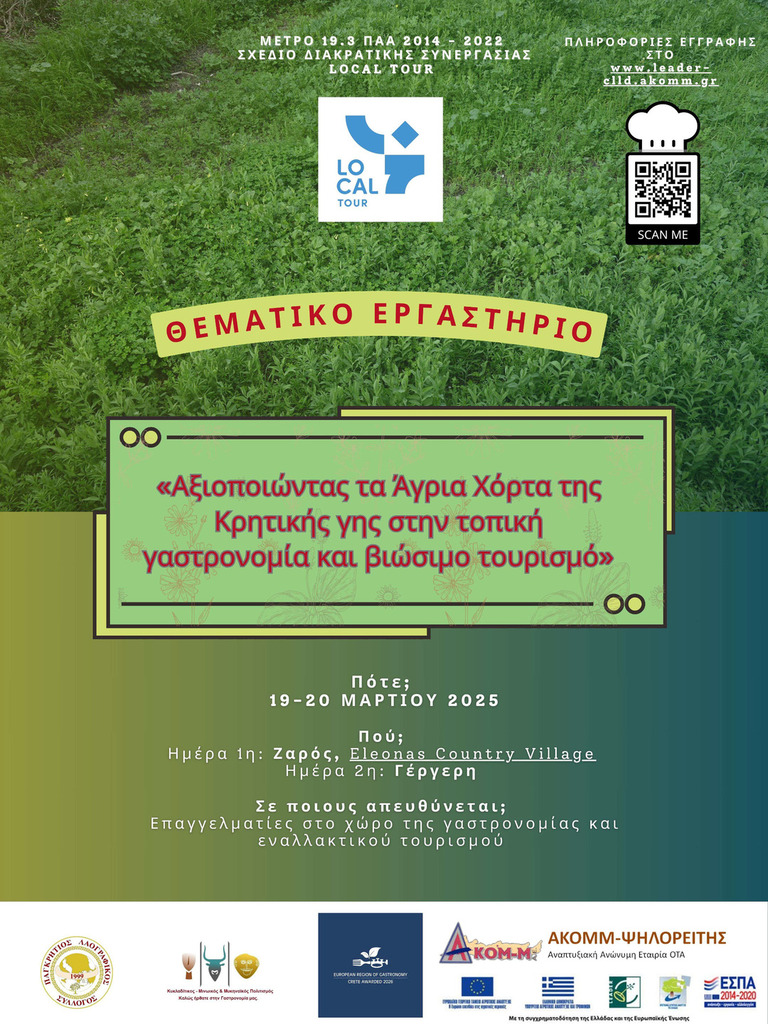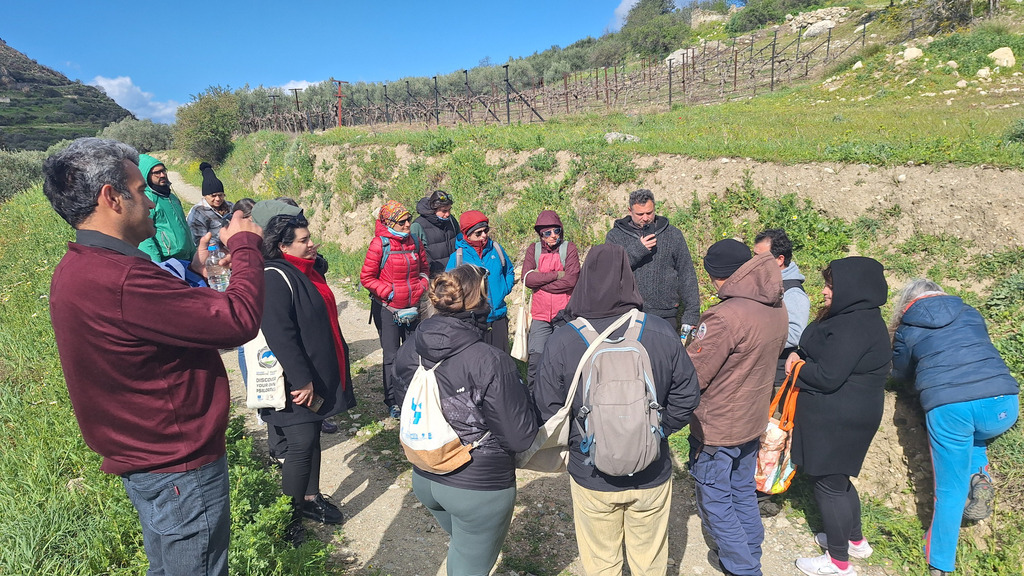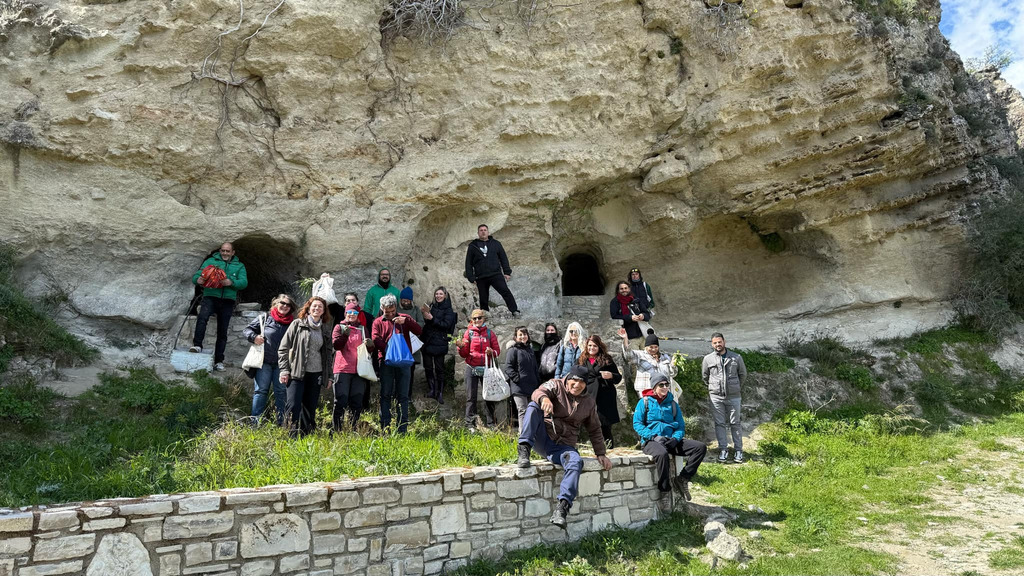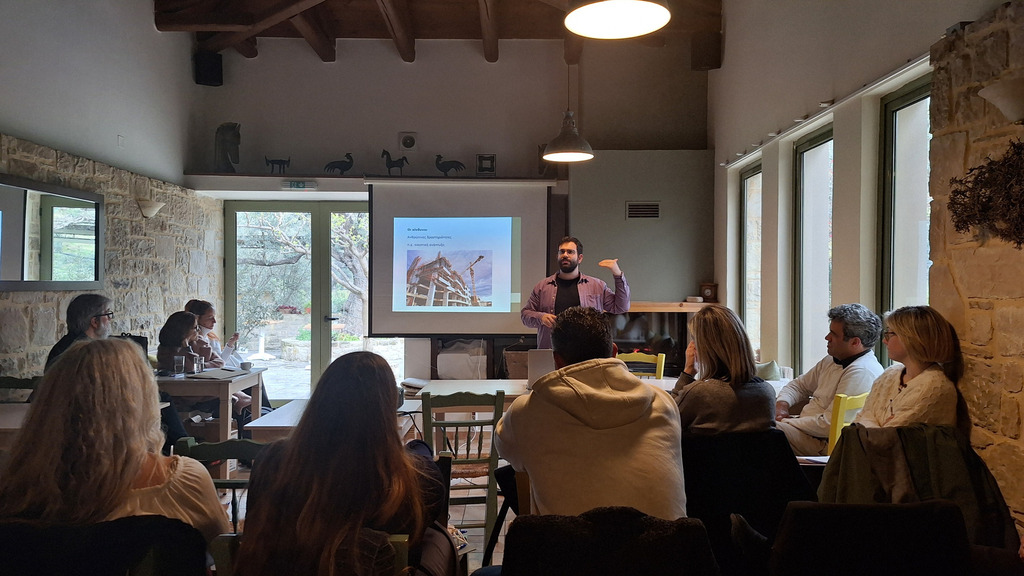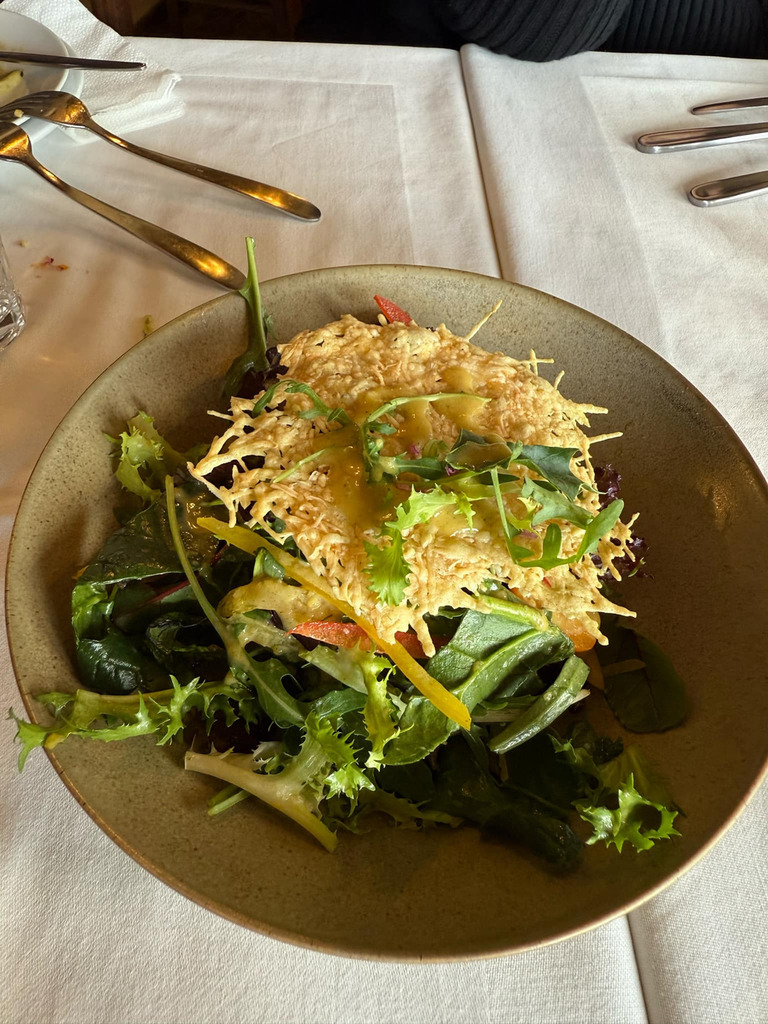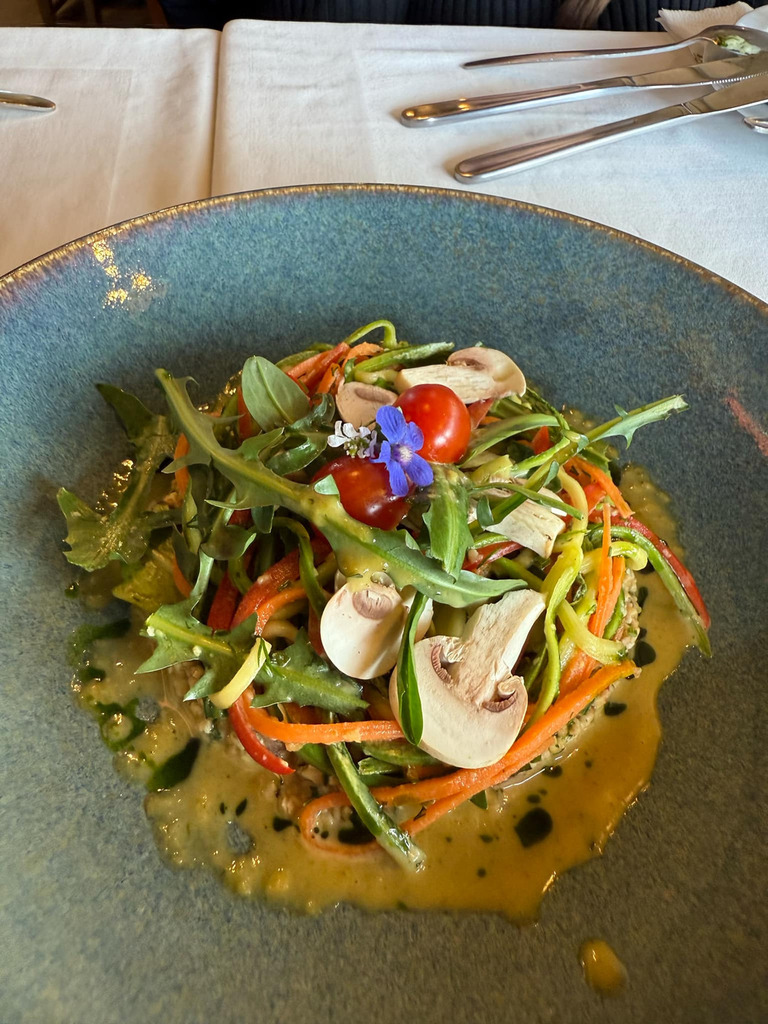Utilizing the Wild Herbs of the Cretan Land in Local Gastronomy and Sustainable Tourism
THEMATIC WORKSHOP
Utilizing the Wild Herbs of the Cretan Land in Local Gastronomy and Sustainable Tourism
INTERNATIONAL COOPERATION PROJECT LOCAL TOUR
SUB-MEASUREMENT 19.3 of the RURAL DEVELOPMENT PROGRAM 2014 - 2022
A two-day experiential Thematic Workshop entitled: “Utilizing the Wild Herbs of the Cretan Land in Local Gastronomy and Sustainable Tourism” was held on March 19-20, 2025 by AKOMM Psiloritis SA Local Government in the areas of Zaros and Gergeri. The workshop was attended by a total of 44 beneficiaries, entrepreneurs and employees around gastronomic tourism, tourism operators and students in catering, journalists, representatives of higher education institutions as well as representatives of local bodies and the Region of Crete.
This is an action of the transnational cooperation project “LOCAL TOUR”, which is implemented within the framework of Sub-Measure 19.3 of the Local Programme CLLD/LEADER, Measure 19 of the RDP 2014-2022 and is co-financed by the European Agricultural Fund for Rural Development and the Ministry of Rural Development and Food. “LOCAL TOUR” concerns the transnational cooperation between 23 Local Action Groups from two countries (Greece and Cyprus) with the main aim of developing local, intra-regional and transnational actions of collective interest, to achieve synergies and create integrated interventions in the field of gastronomic culture. Also, the action is part of the initiative “Crete European Region of Gastronomy 2026”.
The main objective of the thematic workshop was to inform the local population about the possibilities that gastronomic tourism provides both to businesses and to the economy of the region, to get to know good examples from other regions of Europe and the country, to be educated in the concept of “honest product” and the value it has for each visitor and to become an ambassador of gastronomic tourism for their region.
The first day of the thematic workshop took place in Zaros at Eleonas Country Village, a typical example of a complex of traditional guesthouses built in complete harmony with the natural environment and in the heart of the UNESCO Global Geopark of Psiloritis. The complex utilizes its environment to promote a sustainable lifestyle, making it an excellent example of how tourism can coexist with, and even enhance, the sustainability of an area.
With opening remarks from the Director of AKOMM PSILORITIS AAE OTA, Mr. Dimitris Pattakos, the Deputy Regional Governor in the field of Agricultural Economy, Mr. Stavros Tzedakis and the Mayor of Phaistos, Mr. Grigoris Nikolidakis, the workshop was enriched by speeches related to regional quality labels, wild herbs as part of the Cretan diet, actions to promote Cretan gastronomic tourism, as well as examples of good practices in the field of gastronomy and sustainable tourism.
After the presentation of Ms. Evi Vrentzou, Coordinator of the LEADER program of AKOMM for the presentation of the axes of action of the “LOCAL TOUR” project and the concept of an honest / authentic product, the speech of Ms. Irini Houdetsanaki, President of the Agri-Food Partnership of the Region of Crete, regarding the Certification of products and services with the “Crete” label followed. With the aim of promoting and highlighting quality products produced within its Region, the Agri-Food Partnership has as its field of activity the primary, secondary sector, catering and their connection with tourism. Ms. Irini Makedon-Pagopoulou, Program Manager on behalf of the Educational Development PLOIGOS, spoke about the initiative “Crete European Region of Gastronomy 2026” in collaboration with the Region of Crete and the Strategic and Operational Plan for the “Cretan Food Culture”.
Mr. Yiannis Ktistakis, Director of the Home Crafts Network of Crete from the Educational Development PLOIGOS in his presentation: “Certified Home Crafts in Crete: A Bridge between Local Gastronomy and Sustainable Tourism” referred to quality assurance through the certification of home crafts products and their export opportunities, the possibility of utilizing wild herbs in home crafts production and the connection of authentic local gastronomy with sustainable tourism.
Then, Ms. Antonia Psaroudaki, Assistant Professor of Healthy Nutrition and Food at the Department of Nutrition and Dietetics of ELMEPA spoke about “Edible native plants in the traditional nutritional model of Crete. Ingredients and health promotion of the human body.” According to Ms. Psaroudaki, the frequent consumption of native edible greens and vegetables, an important feature of the Cretan Mediterranean model, contributes to the interaction of beneficial components for their assimilation in the human body and the proper functioning of the metabolism. At the same time, the way to introduce these plant species into production and cultivation while maintaining their significant nutritional value is being examined.
In addition, Mr. Michalis Choreftakis, Biologist and PhD candidate at the Department of Biology of the Aristotle University of Thessaloniki, represented the Mediterranean Plant Conservation Unit of the Mediterranean Agronomic Institute of Chania with his speech on the rich plant diversity of Crete, the protection and conservation regime of biodiversity, the risks from human activity and climate change, as well as the protection of aromatic and medicinal plants and their sustainable use.
In the context of examples of good practices in the field of gastronomy, Mr. Andreas Andreadis, on behalf of “Forage”, the first company in Greece for the collection, processing & standardization of wild and non-Greek food of high gastronomic value, referred to the “journey” of the company from its inception to the present day. With a focus on food safety and top quality, its aim is to highlight special flavors and forgotten super food varieties as well as their products, as well as respect for the environment by ensuring the preservation of wild mushroom populations with the addition of cultivable species.
The Cycladic Minoan and Mycenaean Civilization team, of the Pancretan Folklore Association and the renowned chefs of the “Olympic Gastronomy Team” presented dishes based on the wild herbs of Psiloritis and local products from local producers.
During and at the end of the first day, a meal based on the Cretan diet and wild herbs was offered by Eleonas Country Village as a means of promoting and celebrating traditional culinary practices.
The second day, where participants had the opportunity to participate in the experiential process of sustainable collection of wild herbs and to visit the Gergeri Women's Cooperative where traditional local xerotigana and herb pies were offered.
The speeches of the second day began with the greetings from the Deputy Mayor of Gortyna, D.E. Rouvas, Mr. Stylianos Sifakis in the multi-purpose hall of the Gergeri settlement. The documentary of the Municipality of Platanias, the Public Benefit Enterprise of the Municipality of Platanias and New Television of Crete was presented: “WILD HERBS, our precious heritage” by the director and Production Manager of New Television of Crete, Ms. Katerina Bikaki, arousing the emotions of many participants.
Finally, the local business “The Truffle Hunter” presented the authentic experience of hunting wild truffles and producing organic honey from rare plant varieties from the Rouvas Forest and the participants visited the company’s facilities.
All the speeches in this two-day event aroused the intense interest of the participants, leading to a fruitful dialogue immediately after each speech on the prospects for the development of thematic gastronomic tourism as well as the sustainability of wild edible flora and its protection practices.
The two-day event closed with a meal at the local tavern “Theatro” with imaginative recipes with local herbs, enhancing the local gastronomic culture.

